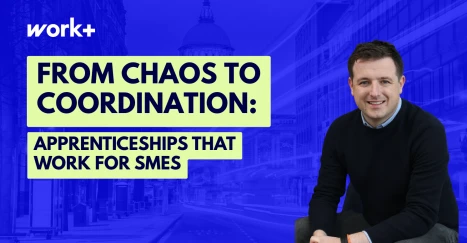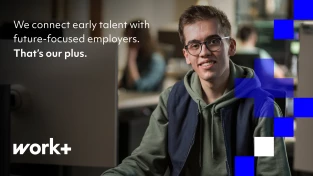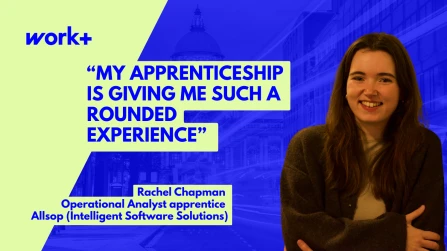
Anyone who has spent time with small and medium-sized employers will know the pattern. A business owner eager to invest in young talent finds themselves lost in a fragmented maze: multiple websites, conflicting timelines, repetitive forms, and little guidance. Parents and carers want to help their children but don’t know where to start. Careers advisers want to point students to apprenticeships but are faced with a system that is opaque and inconsistent.
The Edge Foundation’s Chaos to Coordination report captures this reality. Apprenticeships should be straightforward, inspiring routes into work, yet too often the process feels unsupported, complex, and out of step with the rhythm of school and family life. For every young person who secures an apprenticeship, three try but fail. The appetite is there, but the pathway isn’t clear.
When employers are asked why they hesitate to take on apprentices, their answers are strikingly similar: “We don’t know where to start,” “It takes too much time,” “We can’t see the bigger picture.” These are not objections to apprenticeships themselves – quite the opposite. They reveal a desire to take part, but frustration at a system that makes it harder than it needs to be.
What changes everything is coordination. Picture a concert: when the curtain rises, the audience hears one piece of music, each instrument in time, each part complementing the other. That’s what apprenticeship recruitment can feel like when employers work to common dates, when young people see opportunities clearly in one place, and when schools, parents and carers know what’s coming. Instead of a cacophony, there is a steady beat to dance to.
Over recent years, employers have experienced how powerful this can be. Aligning recruitment around shared timelines, offering a single application process, and surrounding it all with clear stories and guidance transforms the experience. Small businesses who once felt apprenticeships were beyond them have discovered it can be done – and done well – when the system provides structure and support.
The call from Edge is clear: apprenticeships work, but only when the system works for everyone. For policymakers and local leaders, the challenge is not to invent enthusiasm – it already exists in our SMEs, our schools, and our young people. The challenge is to give them coordination, visibility, and rhythm. Do that, and apprenticeships will truly deliver on their promise.
Richard Kirk is Founder and CEO of Workplus, an online platform which runs coordinated apprenticeship campaigns. By bringing employers together and aligning recruitment cycles, Workplus helps SMEs connect with aspiring apprentices in a way that is clear, fair and reduces the burden on applicants and employers.














